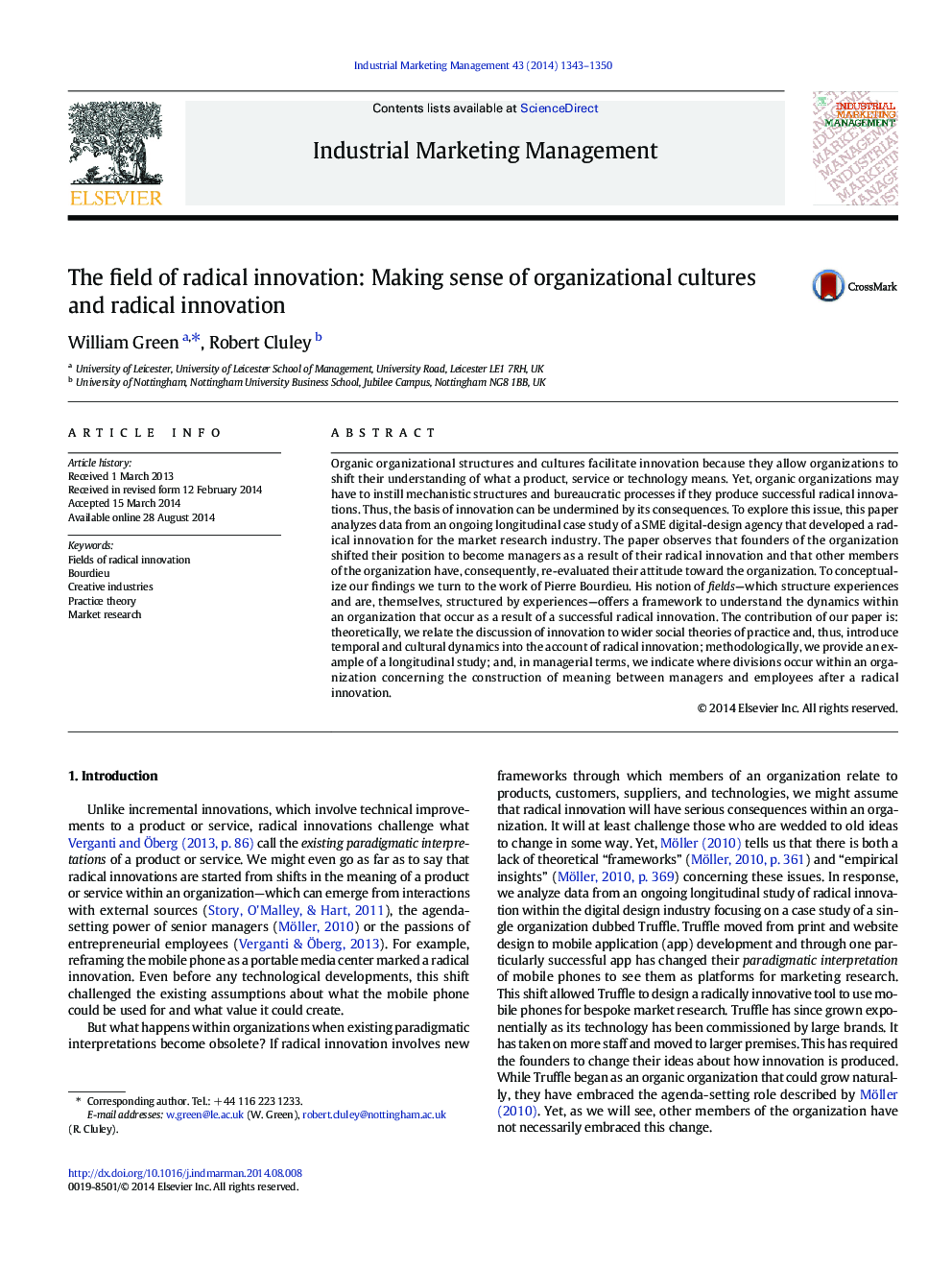| Article ID | Journal | Published Year | Pages | File Type |
|---|---|---|---|---|
| 1027557 | Industrial Marketing Management | 2014 | 8 Pages |
•We provide a longitudinal case study of the experience of employees and managers following a radical innovation.•Social practice theory is used to interpret the organization's cultural changes as a result of the radical innovation.•The radical innovation caused a shared organic organizational culture to become separated and mechanistic.•The changes in working practice were interpreted in different ways reflected as fields of radical innovation.
Organic organizational structures and cultures facilitate innovation because they allow organizations to shift their understanding of what a product, service or technology means. Yet, organic organizations may have to instill mechanistic structures and bureaucratic processes if they produce successful radical innovations. Thus, the basis of innovation can be undermined by its consequences. To explore this issue, this paper analyzes data from an ongoing longitudinal case study of a SME digital-design agency that developed a radical innovation for the market research industry. The paper observes that founders of the organization shifted their position to become managers as a result of their radical innovation and that other members of the organization have, consequently, re-evaluated their attitude toward the organization. To conceptualize our findings we turn to the work of Pierre Bourdieu. His notion of fields—which structure experiences and are, themselves, structured by experiences—offers a framework to understand the dynamics within an organization that occur as a result of a successful radical innovation. The contribution of our paper is: theoretically, we relate the discussion of innovation to wider social theories of practice and, thus, introduce temporal and cultural dynamics into the account of radical innovation; methodologically, we provide an example of a longitudinal study; and, in managerial terms, we indicate where divisions occur within an organization concerning the construction of meaning between managers and employees after a radical innovation.
